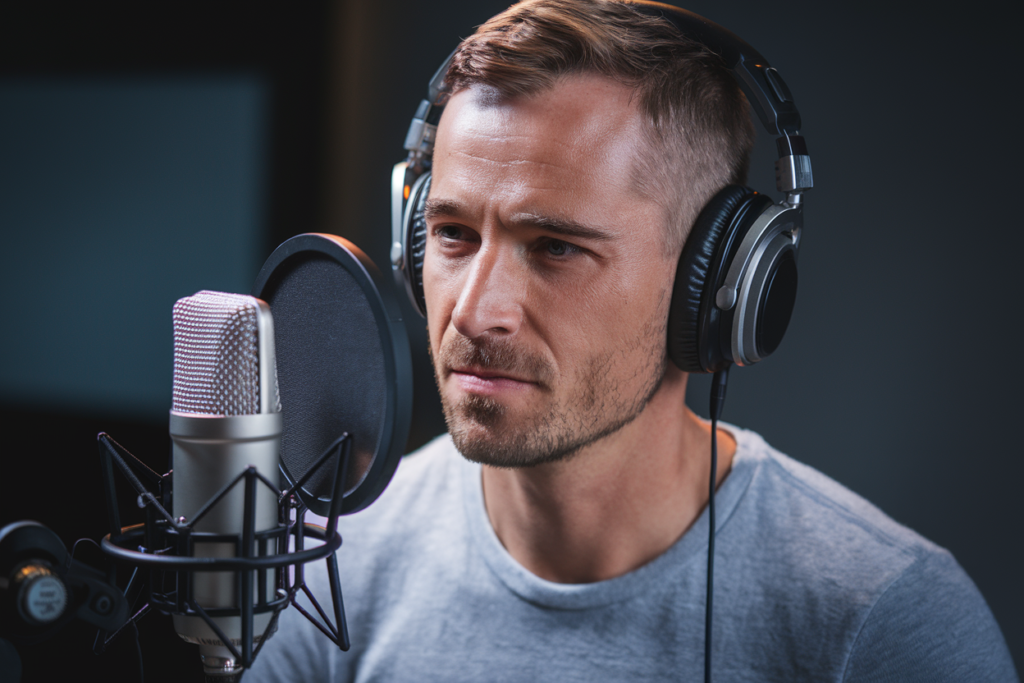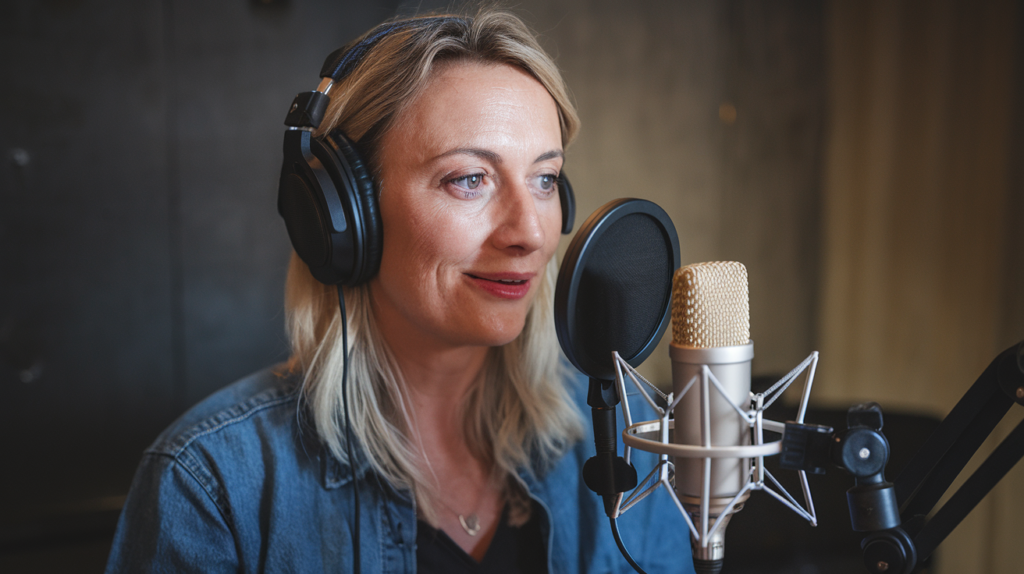Recording French and Flemish voiceovers in Belgium presents unique challenges that can trip up even the most seasoned professionals. With the country’s rich linguistic diversity, voiceover artists often find themselves navigating not just different languages but also regional accents and cultural nuances. This complexity requires a deep understanding of both language variations to deliver authentic and relatable content.
Moreover, technical aspects like studio acoustics and equipment compatibility play a crucial role in achieving high-quality recordings. The clash between traditional recording methods and modern technology can lead to unexpected hurdles. Whether you’re an aspiring voice artist or a producer looking for insights, understanding these challenges is key to mastering the art of Belgian voiceovers.
Key Takeaways
- Linguistic Diversity: Belgium’s rich linguistic landscape necessitates voiceover artists to navigate various dialects and regional accents, ensuring authenticity in delivery.
- Cultural Nuances: A deep understanding of local customs, humor, and societal norms is essential for voice actors to connect with audiences effectively.
- Technical Challenges: High-quality recordings depend on modern equipment and appropriate studio environments; outdated technology can hinder production quality.
- Impact of Regional Accents: Familiarity with distinct phonetic characteristics of regional accents is crucial for voice talent to resonate with local listeners.
- Expertise Matters: Hiring experienced voice artists who comprehensively understand both language variations and cultural subtleties significantly enhances project outcomes.
Overview of Voiceover Industry in Belgium
The voiceover industry in Belgium thrives on linguistic diversity, encompassing French, Flemish, and various dialects. This complexity leads to a rich pool of voice talent capable of delivering authentic performances. Understanding the nuances of regional accents is crucial for clients seeking to connect with local audiences.
Voice artists in Belgium often navigate cultural subtleties that influence their delivery styles. Familiarity with these elements enhances the quality and relevance of voiceovers produced for different markets. As a result, hiring experienced voice actors who grasp these intricacies can significantly impact project outcomes.
Technological advancements play a significant role in shaping the Belgian voiceover landscape. Modern recording techniques have improved sound quality while traditional methods still hold value for certain projects. Collaboration between innovative technology and established practices allows you to achieve high-quality results tailored to your specific needs.
Recognizing Belgium’s unique linguistic environment equips you with valuable insights when selecting voice over talent for your projects. Prioritizing expertise in both language variations and recording techniques ensures successful communication through effective voiceovers.
Challenges Faced in Recording French Flemish Voiceovers
Recording French and Flemish voiceovers presents several challenges due to Belgium’s unique linguistic landscape. Understanding these challenges is crucial for achieving high-quality results that resonate with local audiences.
Linguistic Diversity
Linguistic diversity significantly influences voiceover work in Belgium. You encounter various dialects and regional accents, each requiring specific expertise from voice artists. Not all French speakers share the same pronunciation or intonation, and these differences can affect how a message is received. When selecting a voice talent, consider their familiarity with regional variations to ensure an authentic performance. Moreover, balancing both languages demands precise translations that maintain the original meaning while adapting to cultural contexts.
Cultural Nuances
Cultural nuances play a vital role in the effectiveness of your voiceover project. Familiarity with local customs, humor, and references enhances relatability for listeners. A voice actor who understands cultural subtleties can deliver lines that not only sound correct but also feel genuine to the audience. Misinterpretations can arise if a voice over artist lacks insight into Belgian culture; therefore, thorough research about societal norms and values becomes essential for successful communication through voiceovers.
Technical Difficulties in Recording
Recording voiceovers in Belgium presents specific technical challenges that require attention to detail and expertise.
Equipment Limitations
Equipment plays a crucial role in achieving high-quality voiceover recordings. Many studios may possess outdated technology or incompatible gear, impacting sound clarity and overall production value. Voice artists often face difficulties when trying to adapt their techniques to equipment that doesn’t meet modern standards. Ensuring access to the latest microphones, audio interfaces, and editing software is essential for capturing clear audio without distortion or background noise. Additionally, voice talent should assess equipment compatibility before commencing projects to avoid potential delays during recording sessions.
Studio Environment
The studio environment greatly influences the quality of voiceover recordings. Soundproofing measures must be adequate to eliminate external noise disruptions. Acoustic treatment significantly enhances sound quality by preventing echoes and reverberations that can muddy recordings. Voice actors benefit from working in well-designed studios that provide optimal conditions for vocal performance, including proper microphone placement and sufficient isolation from other sounds. The choice of studio also impacts the comfort level of voice artists; an inviting atmosphere fosters better performances since relaxed talent can deliver more authentic interpretations of scripts.
Impact of Regional Accents
Regional accents play a significant role in the recording of French and Flemish voiceovers in Belgium. Understanding these accents enhances your ability to connect with local audiences effectively. Each accent carries distinct phonetic characteristics, which can influence how messages are received by listeners.
When selecting voice talent, consider their familiarity with various regional accents. A voice artist proficient in Walloon may deliver a different tone compared to one well-versed in Brussels dialects. This diversity affects not only pronunciation but also intonation and emotional delivery, essential for authentic performances.
Moreover, cultural nuances tied to regional accents impact relatability. Voice actors who grasp local customs and humor can create deeper connections through their work. Without this cultural insight, there’s potential for misinterpretations that undermine the intended message.
Additionally, when recording voiceovers for specific regions, ensure that your chosen voice over talent reflects the target audience’s linguistic preferences. This careful consideration helps avoid alienating listeners unfamiliar with a particular accent or dialect.
Understanding the impact of regional accents on voiceover recordings enhances both creativity and effectiveness in communication strategies tailored for Belgian audiences.
Conclusion
Recording French and Flemish voiceovers in Belgium presents unique challenges that require careful consideration. You need to navigate the linguistic diversity while also paying attention to regional accents and cultural nuances.
Investing time in understanding these elements can significantly enhance the authenticity of your recordings. Additionally, ensuring access to modern technology and a well-designed studio environment is vital for achieving high-quality sound.
By embracing these complexities you’ll not only improve your craft but also connect more effectively with your target audience. This journey may be challenging but it’s also rewarding as you create impactful voiceover work that resonates with listeners across Belgium.
Frequently Asked Questions
What are the unique challenges of recording voiceovers in Belgium?
Recording voiceovers in Belgium is challenging due to its linguistic diversity, which includes French, Flemish, and various regional accents. Understanding these language variations and cultural nuances is essential for creating authentic content that resonates with local audiences.
Why is understanding regional accents important for voiceover artists?
Regional accents significantly impact pronunciation, intonation, and emotional delivery in voiceovers. Familiarity with local accents helps voice artists connect better with audiences and ensures the message is received as intended.
How do cultural nuances affect Belgian voiceovers?
Cultural nuances influence humor, references, and societal norms. Voice artists who understand these subtleties can create relatable performances that resonate more deeply with listeners, avoiding potential misinterpretations.
What technical considerations should be made when recording French and Flemish voiceovers?
Key technical considerations include studio acoustics, equipment compatibility, soundproofing, and acoustic treatment. Access to modern recording technology enhances sound quality while ensuring a well-designed studio environment contributes to effective vocal performance.
How does linguistic diversity benefit the Belgian voiceover industry?
Linguistic diversity creates a rich pool of talent capable of delivering authentic performances across different languages and dialects. This variety enables clients to choose voice artists who best fit their target audience’s preferences and needs.






